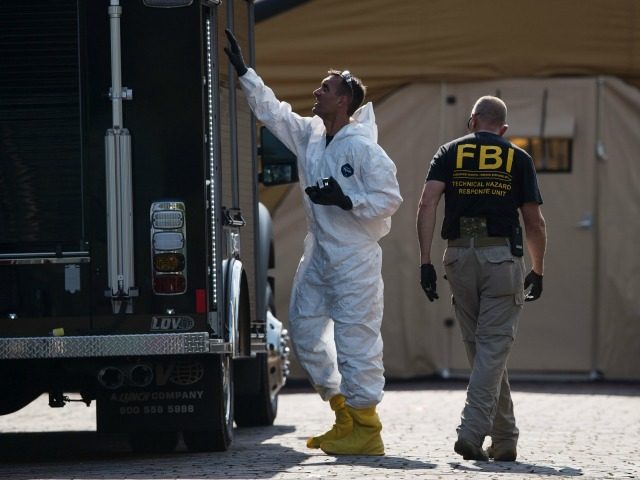Politico national editor Michael Hirsh, in the middle of a hot take on whether Pulse nightclub killer Omar Mateen was a true Scotsman Islamic jihadist, explores how the FBI is adapting to a new wave of Islamic State warriors who don’t give the telltale signs of radicalization before they strike.
From Politico Magazine:
Could Mateen have been caught? It’s unfair to expect that U.S. law enforcement can track and stop every would-be terrorist. But perhaps the toughest thing to explain about the worst mass shooting in U.S. history is how a man who was interviewed three times by the FBI ended up buying, unnoticed, an entire arsenal and then gunning down, unsurveilled, more than 100 people. He’d been on the FBI’s radar because he attended the same Florida mosque as a suicide bomber named Moner Abusalha, who had gone to Syria to blow up Syrian government soldiers in 2014, but Comey said this week that ultimately the FBI determined that there were “no ties of any consequence” between the two men. That’s one reason why the FBI stopped inquiring about him: no known “connections.” Comey indicated that the FBI’s concerns about Mateen were eased after a witness told the bureau that Mateen got married, had a child and found steady work.
The bureau’s approach was somewhat the same with Boston Marathon bomber Tamerlan Tsarnaev, who was interviewed but dropped by the FBI, which left instructions to notify the bureau if he went abroad—as if that would be the only trigger they needed to worry about. (As it turned out, U.S. Customs might have failed to do even that.)
Comey, asked whether FBI agents should have done anything differently in the case of Mateen, responded: “So far, the honest answer is, I don’t think so.” But some law enforcement experts strongly disagree, and there does seem to be substantial evidence that the FBI has been slow to grasp the changing nature of terrorism—and to counter the Islamic State’s skill at recruiting or exploiting vulnerable individuals. These critics say the tally of missed clues from Boston to Orlando is evidence that to a disturbing extent the FBI and intelligence community are still fighting the last war, one in which “radicalization” follows a predictable path (e.g., growing a beard, praying more frequently) and the telltale signs of a terrorist in the making are organized links to terrorist groups and plans to travel abroad.
Lorenzo Vidino, director of the Program on Extremism at George Washington University’s Center for Cyber & Homeland Security, says it’s “in the FBI’s DNA” to pursue such criminal links to terrorist groups and build a case in the way law enforcement traditionally does, with questions like: Who did you meet with? Who did you talk to? Can you account for your actions for such-and-such period of time? “There’s an overemphasis on operational links,” he says. “It’s easier to put into a box—a paradigm the FBI is more used to.”
True, over the past few years the FBI has begun to alter its approach to this homegrown terrorism. According to John D. Cohen, who from 2009 to 2014 was counterterrorism coordinator at the Department of Homeland Security: “It’s different from only two or three years ago when the FBI followed a more traditional path of determining whether they were in danger of becoming terrorists—and they weren’t looking at more behavioral aspects, like their school record or evidence of a violent divorce, as they are now.”
But the changes don’t appear to be fast enough. What Mateen’s attack, and the FBI’s failure to track him, suggest is that the terror threat appears to be evolving more quickly than U.S. authorities can keep up with it. Al Qaeda was the prototype, luring young men to its training camps in Afghanistan and Yemen, enforcing rigid discipline and operational control. But in the age of the Islamic State and nonstop social media, the whole process of radicalization—especially for psychotic lone wolves—is very different from what it used to be for the Mohamed Attas and Khalid Sheikh Mohammeds of the world. And it is rarely related to what the FBI trained itself to look for.
Unlike Al Qaeda, ISIS operates on several dimensions at once. It’s got an army at home in Syria and Iraq, and around the world it features an evanescent, twilit army of quasi-recruits who behave somewhat like quantum terrorists; they are neither one thing nor another but both somehow, Americans with unblemished records one day, remorseless murderers the next. Or as Comey somewhat awkwardly described it, the FBI must not only find “needles in a nationwide haystack” but also figure out “which pieces of hay might someday become needles.”
Read the rest of the article here.

COMMENTS
Please let us know if you're having issues with commenting.